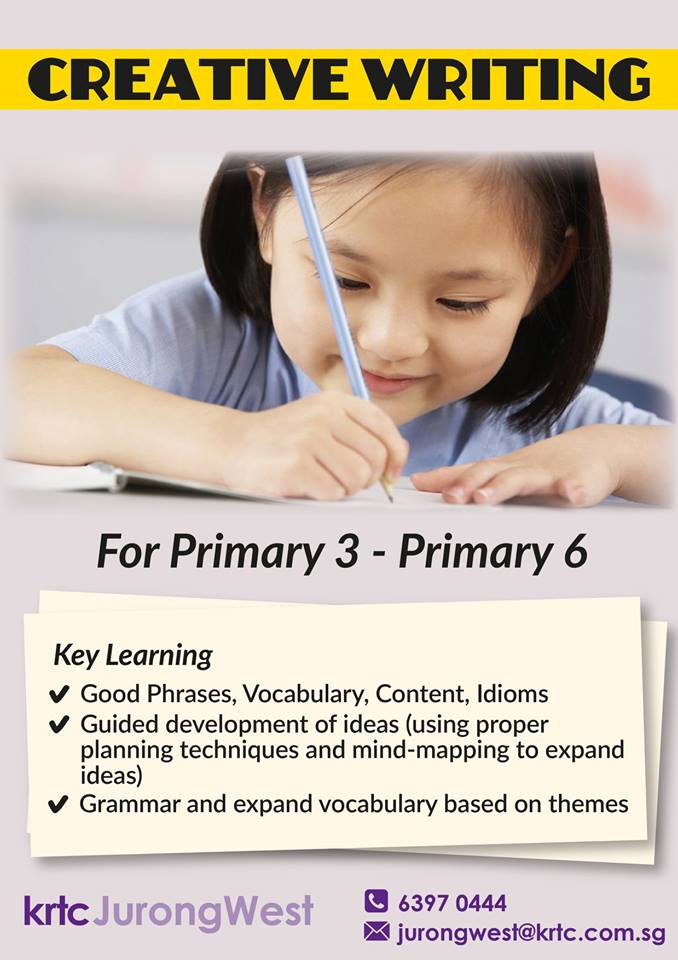Among the hectic lifestyle and stress, we thought that these memorization tips would be helpful for children to improve their memory. Something they can work on during their free time. Not only does it help with memory work for facts and figures, but it also helps to reduce the chances of one of the most feared scenarios – when a child’s mind goes blank.
Therefore, we are giving you these 5 tips and tricks. We hope that they will make good use of them during their learning. We here at Kent Ridge Education Hub hope that these will be beneficial to the students.
1. Story Telling Using Information
Memory performance tends to decrease when we try to memorise large chunks of data or information. This make it worst if we do not have a strong interest in the subject or if the information is very dry. One way we can overcome this obstacle is to break the information into smaller parts and to create a story to link all these parts together. The story can be entirely imaginative and out of the world, but if it helps you to remember, then it is a good story!
2. Taking a Walk Before the Examination
This can be an interesting tip. By taking a walk before our examination helps us to boost memory and brain power! In an experiment that is being carried out, students taking the same exam were asked to either sit quietly or go for a walk. Surprisingly, those who went for a walk did better and brain imaging showed a higher amount of brain activity. Now you know what to do before an examination!
3. Reading Aloud vs Reading Quietly
Most students tend to read their textbooks silently and pray for the information to be stored in their memory. According to the Ebbinghaus Forgetting Curve, almost 40% of the information that we have just learned get forgotten merely after 20 minutes. This is how scary it is. Thus, one way that students can do to help increase the rate of retention would be to verbalize the content out while they are studying. This also helps to keep them more alert and focused, instead of day-dreaming or dozing off!
4. Create Mental Associations from Drawing Diagrams and Mindmaps
There is a reason why mind maps are so popular and in fact they do work! By drawing a mind map, you can make the connections between seemingly different concepts clearer. This also serves as a handy revision tool as you get a whole visual overview of the chapter just by looking at your mind map! Other than that, it is easier to memorize from a mind map as compared to the content in your textbook. Lastly, the retention would be higher as well because you would have a mini revision when doing up the mind map, so it is a win-win situation!
5. Mnemonics
Many children tend to underestimate the ability of mnemonics. Mnemonic is a method that transforms large amount of information into an alternative form that makes it easier for one to remember. The list of facts would generally be in a certain order and it can be in the form of a song, acronym, image, or a phrase. A useful tip when thinking of mnemonics would be that the funnier or more absurd the mnemonics, the easier to remember!
For example, the order of the planet can be remembered as:
My Very Educated Mother Just Served Us Noodles
(Mercury, Venus, Earth, Mars, Jupiter, Saturn, Uranus, Neptune)
Another example, to remember the value of pi:
May I have a large container of coffee?
(The number of letters in each word equals the numerals in pi = 3.1415927)
Last but not least, the order of the rainbow can be remembered as:
ROY G. BIV
(Red, Orange, Yellow, Green, Blue, Indigo, Violet)
We hope these tips could help your kids memorize better!
If you need further assistance, please do not hesistate to contact us via
Jurong West Branch (KRTC@JW)
Email : jurongwest@krtc.com.sg
Hotline : (+65) 6397 0444




